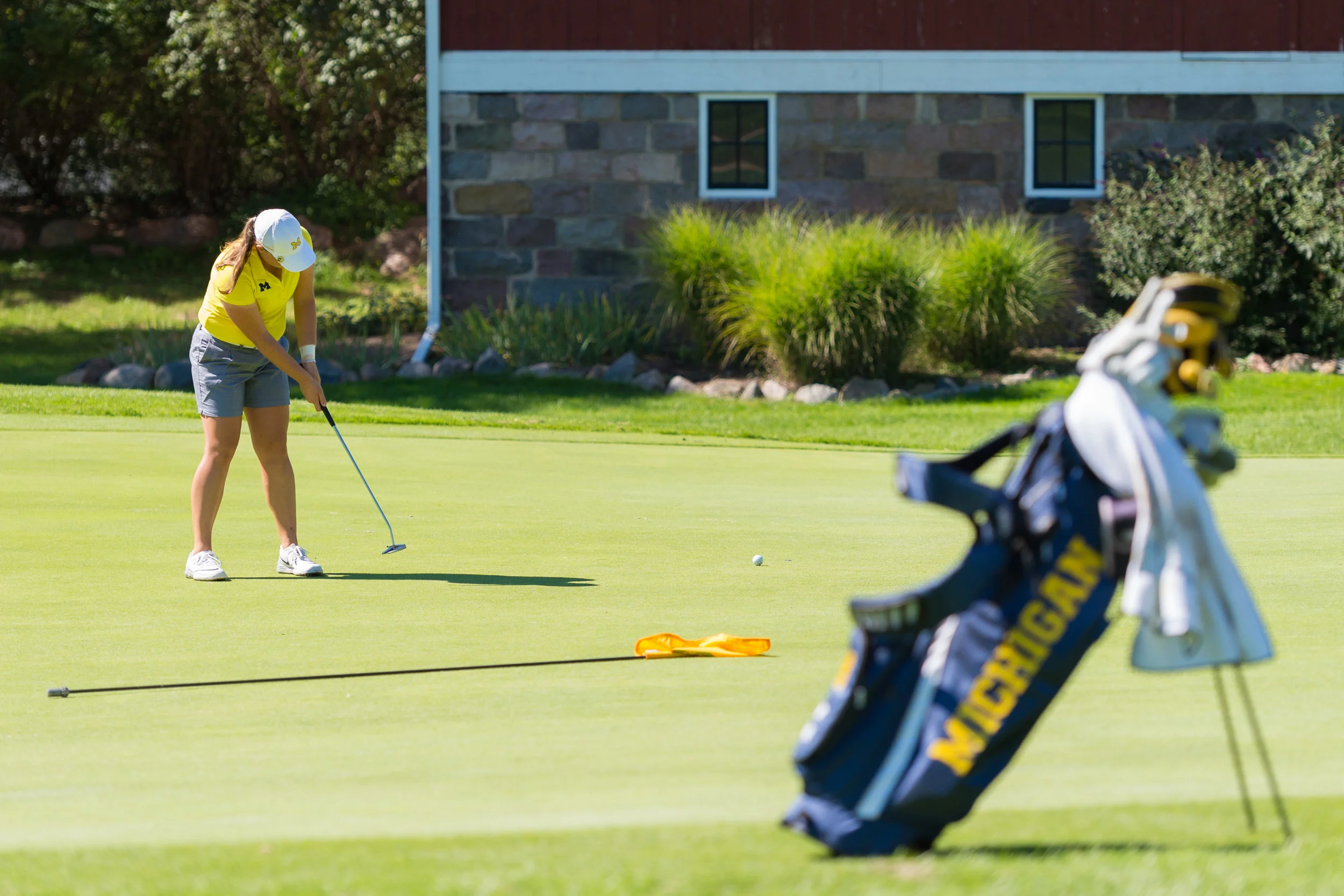Collegiate Golf in the Community
Guest column in the Michigan Golf Journal, January 2019.
What College Golf Brings to the Community
Jan Dowling, University of Michigan Women's Golf Coach
This question was posed to me the other day; what exactly does collegiate golf bring to a community? It’s an important and interesting question to answer considering the direct and indirect impact a collegiate golf program has throughout Michigan as well as the entire country.
There are almost 300 men’s and 270 women’s collegiate golf programs in the United States at the Division I level, alone. With an average roster of 10 athletes per team, that’s approximately 5,700 students currently competing around the country for their respected university.
To begin, many schools have a campus golf course affiliated with their university. Besides being a great training ground for the golf teams, they provide an assortment of benefits to the entire community. We have two separate facilities at the University of Michigan that are open to faculty, staff, students and the general public. The U-M Golf Course and Radrick Farms Golf Course were designed by world renowned architects -- Alister MacKenzie and Pete Dye, respectfully -- that has significant historical relevance to the game.
Hole #13 at the University of Michigan Golf Course.
Our golf courses provide cost effective access to the University community and assist in the introduction and growth of a lifelong sport. Additionally, the property is utilized for environmental research and projects in diverse academic programs. These include the Ross School of Business, School of Environment and Sustainability, and the School of Kinesiology, to name a few. Lastly, students are often hired within the clubhouse and maintenance facilities which provide flexible hands on work experience.
Another instance of community impact is the introduction to and development of golf to juniors and adults. Throughout the year, our coaching staff and student athletes conduct camps and clinics that promote lasting technique improvements and practice strategies that help with long term development. These camps and clinics vary from one or two hour sessions, half day clinics, and even multiple days of teaching and coaching. For anyone interested in improving, these are wonderful avenues to learn about the game of golf from high level players and knowledgeable coaches competing at the highest level in amateur golf.
2018 Michigan Girls Golf Camp.
Giving back to the community in a more direct way is something student-athletes and their athletic department spend a significant amount of time on. Events such as KidSport, Ronald McDonald House, Els for Autism, Magic of Christmas and visiting the C.S. Mott Children’s Hospital are just a few of the ways our team gives back to the community. Giving back to people in need is a great way to show gratitude, define purpose and keep life and athletics in perspective.
Another avenue our collegiate players inspire is throughout our home tournaments. The effort to seek out local collegiate events rewards you with a front row seat to an extremely high level of golf and the future of the professional game. Most programs host at least one home tournament annually or biannually. The roster of players’ own impressive resumes at the national and international level. Many athletes have represented their home countries in the World Amateur Championship, competed in numerous USGA Championships, won state championships and other collegiate events. The level of competition is extremely high and seeing teams compete together in a historically individual sport is quite inspiring.
University of Michigan Women’s golf team member competing at our home tournament, the East & West Match Play Championship. Radrick Farms, Hole #6.
Concluding, college golf provides opportunities for young people to compete at a high level while representing their respected university. Golf teaches discipline, resilience, hard work and gives young adults a purpose that is much bigger than themselves. While engrossing themselves in a sport they love, the students and coaches give back to each other, and assist in creating a prosperous community. The intended and unintended consequence of collegiate programs in communities are worthy of the effort and support.


